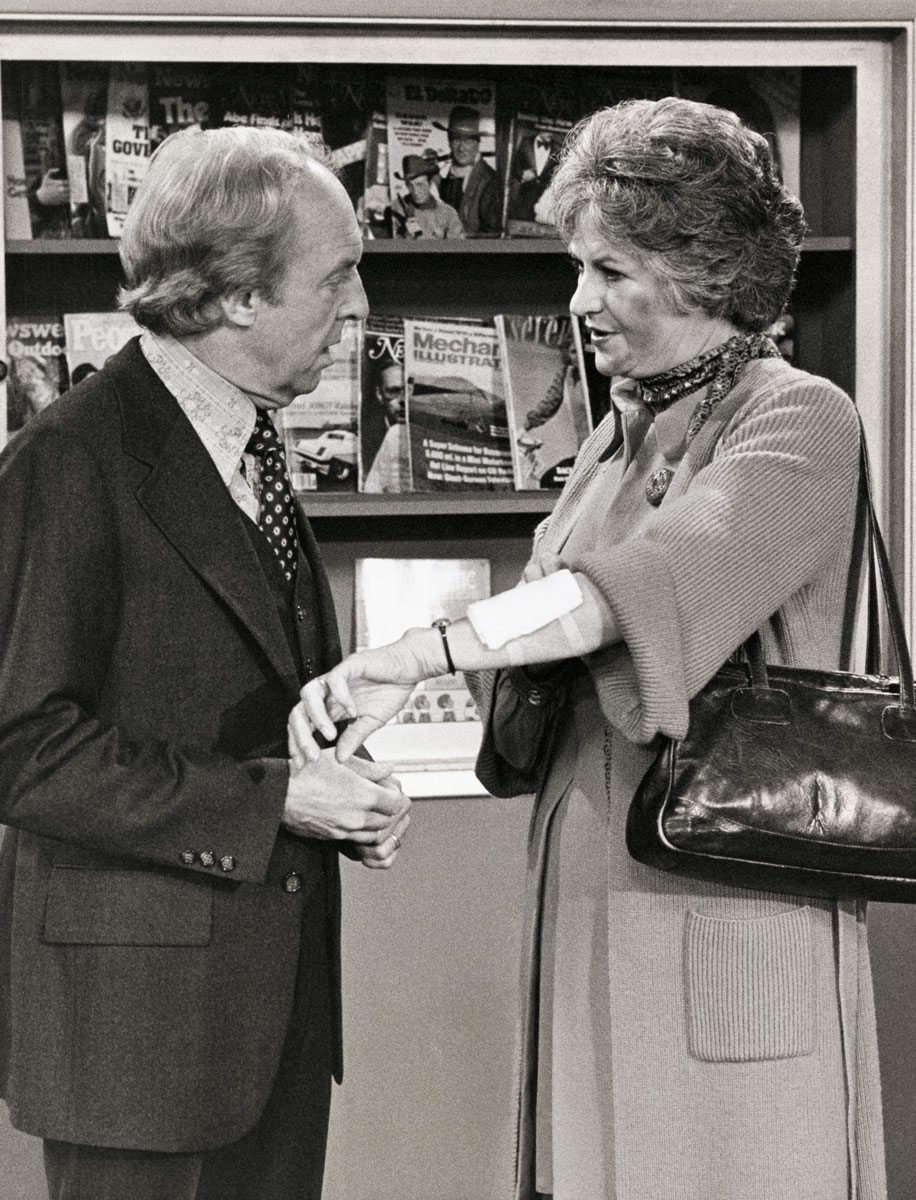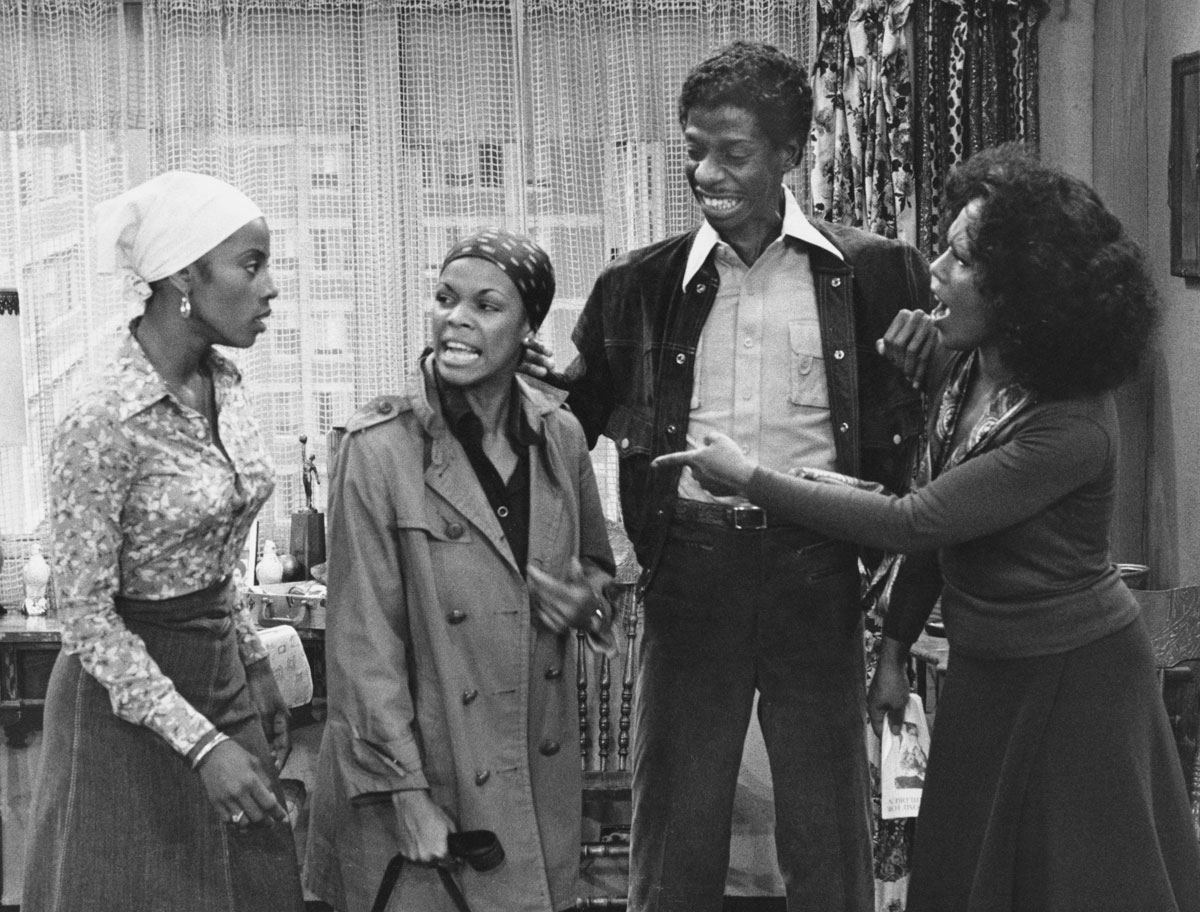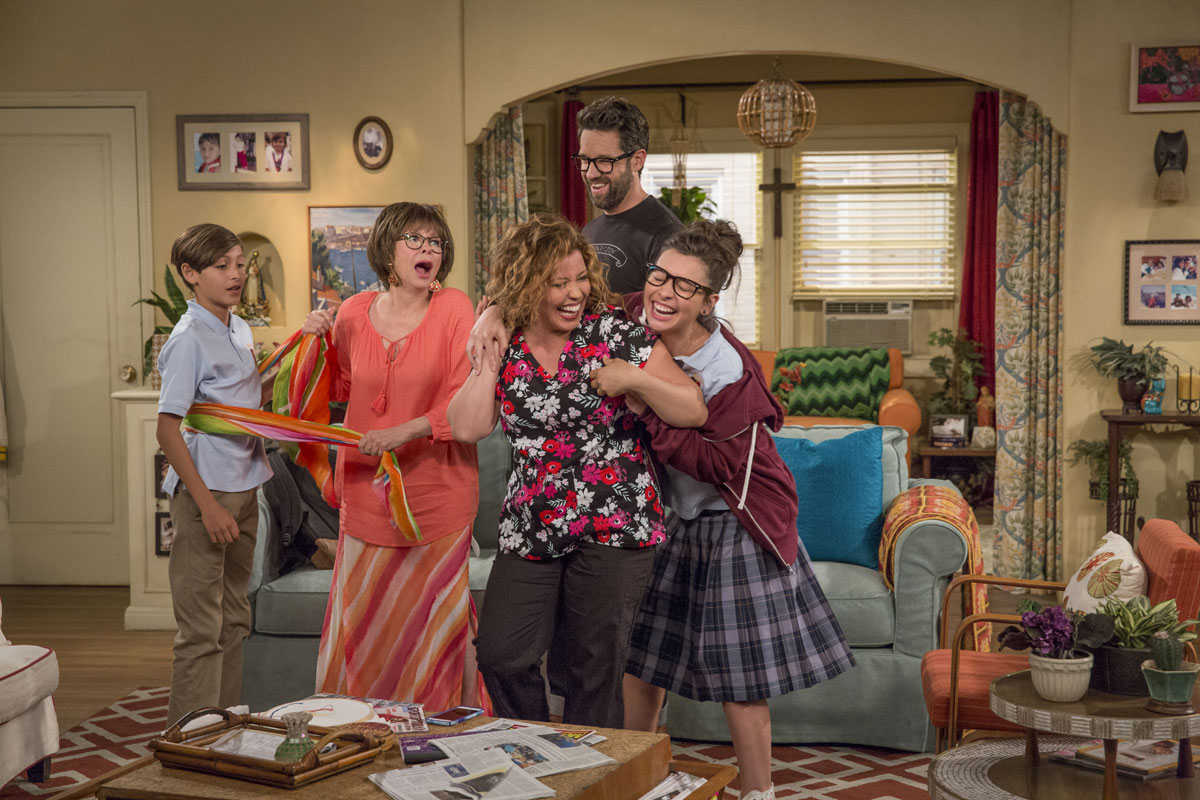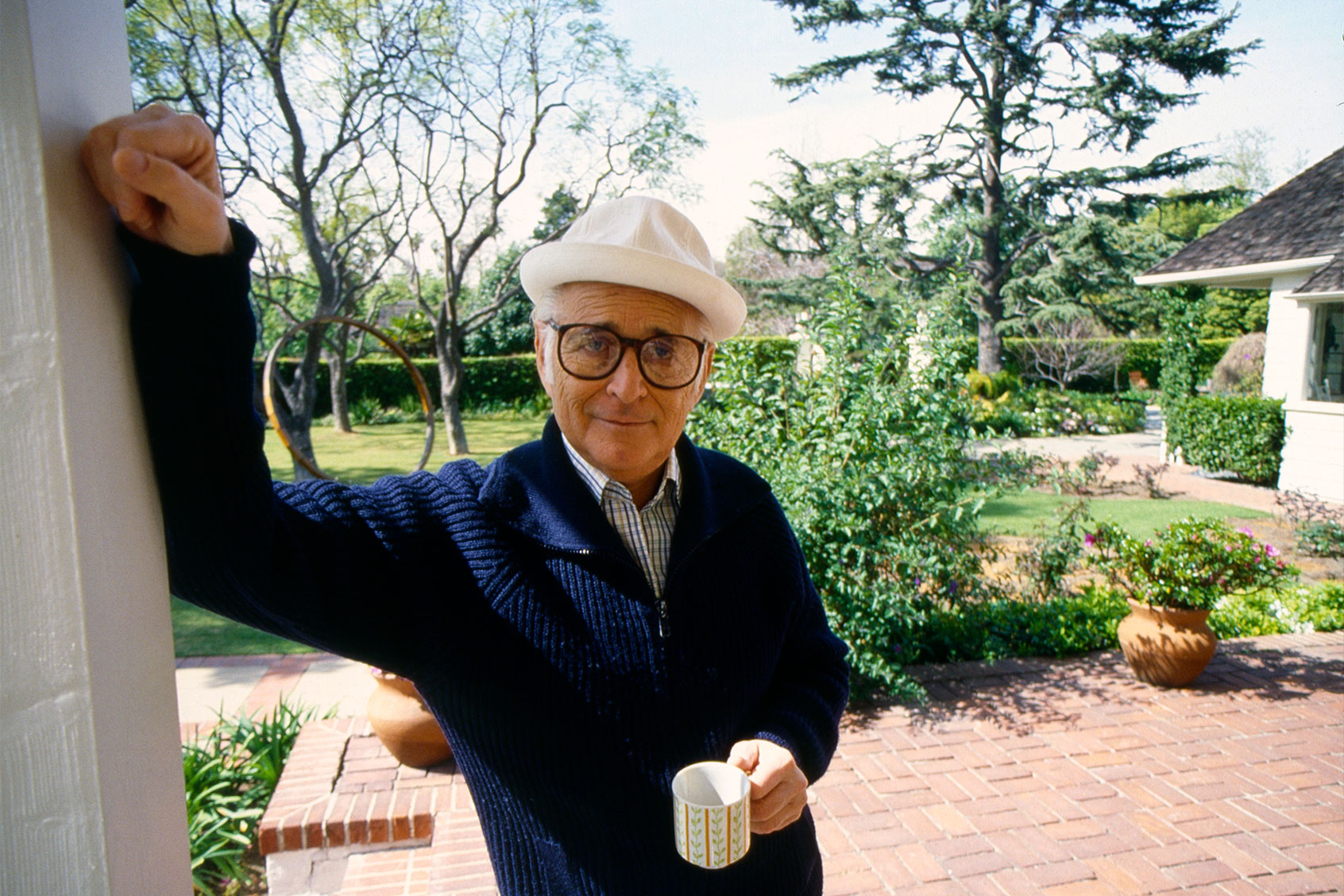One of the few occasions I spoke to Norman Lear was in 2017, while we were waiting for an Outfest panel on “One Day at a Time” that I moderated. The Netflix remake of Lear’s ‘70s classic about a single mother raising two kids while caring for her own aging mother had just been renewed. Lear, along with its co-creators Gloria Calderón Kellett and Mike Royce, were in a wonderful mood.
This was a man who believed in the half-hour comedy’s power to show America’s people in their complexity, struggle and conflict.
We were discussing other great TV comedies that transformed the medium, and Lear spoke with special fondness about “The Mary Tyler Moore Show,” a legendary comedy he wasn’t involved in creating. I had just indulged in a rewatch and marveled at how rare and timeless its writing was.
Everything holds up, I said in agreement, adding “Come to think of it, even the fashion is on point.”
At this, Lear turned his full attention to me, and deadpanned, “Fashion? That’s what you took away from watching that show?” He was joking. I think. I recall not being too sure at that moment.
Lear, who died Tuesday at the age of 101, altered the American sitcom from the stuff of ephemeral escapism to a platform that both entertained and illuminated the human condition. He was as serious about his vision for America as he was funny, and always earnest in communicating his progressive values.
This was a man who believed in the half-hour comedy’s power to show America’s people in their complexity, struggle and conflict – not simply rich, white suburbanites but working- and middle-class families like the Bunkers in "All in the Family,” the Evanses of “Good Times” and “The Jeffersons.”
His life’s work revolved around providing windows into the homes and lives of families who lived and looked like the people watching his shows. And here I was, admiring another groundbreaking comedy for its curtains.
 Bea Arthur, as Maude Findlay, shows her bandaged arm to Dr. Arthur Harmon, played by Conrad Bain, in an episode from the television series Maude. (Getty Images/Bettmann)Lear is one of the few Hollywood figures whose impact on the medium has no peer. Many of his most-acclaimed series aired in the 1970s, like the aforementioned titles, “Sanford and Son” and “Maude,” which, like “The Jeffersons,” was a spinoff of “All in the Family.” But that broadcast comedy and so many others afterward from “The Cosby Show” and Fox’s “Roc” on through the excellent “Superstore,” are Lear’s descendants.
Bea Arthur, as Maude Findlay, shows her bandaged arm to Dr. Arthur Harmon, played by Conrad Bain, in an episode from the television series Maude. (Getty Images/Bettmann)Lear is one of the few Hollywood figures whose impact on the medium has no peer. Many of his most-acclaimed series aired in the 1970s, like the aforementioned titles, “Sanford and Son” and “Maude,” which, like “The Jeffersons,” was a spinoff of “All in the Family.” But that broadcast comedy and so many others afterward from “The Cosby Show” and Fox’s “Roc” on through the excellent “Superstore,” are Lear’s descendants.
“The reason that his shows were so good, among many, is that everyone had a leg to stand on,” said Jim Reynolds, creator of CBS’ long-running comedy “The Neighborhood,” in a 2018 TCA press conference. “Everyone had their own logic that you could follow.”
And each in their way aligned with Lear's progressive vision for America. Lear’s legacy is such that he could fully embrace his identity as a liberal long after the right-wing mediasphere transformed the term into a pejorative.
At times in his career, he played out the more negative meaning of the Hollywood liberal.
He communicated his progressive values through his work and advocacy, prominently realized through his founding of People for the American Way, through which he dedicated himself to counteracting the Christian Evangelical right-wing's sway over on American politics.
More directly, he communicated his thoughts and concerns about America nearly up to his death through short videos posted on Instagram, many of them filmed while holding his morning cup of coffee.
“I'm thinking about two little words that we don't think about often enough, that we don't pay enough attention to: ‘over’ and ‘next,” Lear offered as he turned 101 in July. “When something is over, it is over. And we have the joy and privilege of getting on to the next. And if there were a hammock in the middle between those two words, it would be the best way I know of identifying living in the moment. That hammock between over and next. I'm living in that moment now with all of you and bless all of you and our America.”
We need your help to stay independent
But at times in his career, he played out the more negative meaning of the Hollywood liberal – as in someone who profits from gesturing toward equality and representation without always walking the walk.
The behind-the-scenes stories of how “Good Times” was made and the near-total erasure of co-creator Eric Monte is perhaps the most significant instance on record in which Lear’s reaction comports with that of a business-minded Hollywood producer as opposed to an advocate for marginalized voices.
 Thelma (Bernadette Stanis, left), J. J. (Jimmie Walker) and Willona (Ja'net DuBois, right) argue about the safety of the child of Mrs. Gordon (Chip Fields) with her, in Part III of a four-part story on Good Times, Wednesday, Sept. 28, (8:00-8:30 PM, ET), on the CBS Television Network. (Getty Images/Bettmann)Both the L.A. Times and NPR spoke with Monte in 2006 when he was living in a Salvation Army shelter, all but forgotten by the press and entertainment industry establishment.
Thelma (Bernadette Stanis, left), J. J. (Jimmie Walker) and Willona (Ja'net DuBois, right) argue about the safety of the child of Mrs. Gordon (Chip Fields) with her, in Part III of a four-part story on Good Times, Wednesday, Sept. 28, (8:00-8:30 PM, ET), on the CBS Television Network. (Getty Images/Bettmann)Both the L.A. Times and NPR spoke with Monte in 2006 when he was living in a Salvation Army shelter, all but forgotten by the press and entertainment industry establishment.
In the ‘70s Monte was one of very few Black TV writers experiencing success in Hollywood, first working with Lear when he wrote an episode of “All in the Family” before going on to co-create “Good Times” with Mike Evans, who went on to play Lionel Jefferson. Monte says he left "Good Times" when fellow producers ignored his complaints that its scripts amplified stereotypes, in particular the clownish antics of Jimmie Walker’s J.J., at the expense of the Evanses' dignity.
He was not alone in that opinion. Esther Rolle, who died in 1998, seethed at the show’s increased emphasis on J.J. as "Good Times" found more mainstream success. “He’s 18 and he doesn’t work. He can’t read and write. He doesn’t think,” she told Ebony in 1975. “Little by little . . . they have made him more stupid and enlarged the role.
“I resent the imagery that says to [B]lack kids that you can make it by standing on the corner and saying, ‘Dyn-o-mite!'” she concluded, citing the character's famous catchphrase.
“Good Times” star John Amos also pushed back against this trajectory and was written off the show in 1976. He appears briefly in the 2016 “American Masters” documentary “Norman Lear: Just Another Version of You,” and sums up the strife thusly: “My thing was, take the crap out, or let’s fight.”
Monte, who went on to write the 1975 classic “Cooley High,” which inspired 1976’s “What’s Happening!!” filed a lawsuit against Lear and his co-producer Bud Yorkin along with CBS and ABC. He received a $1 million settlement and a modest slice of residuals from "Good Times." Afterward he was blackballed in the industry, and invested most of his settlement in a producing a play he wrote that flopped. He also lost his home and struggled with drug addiction.
“Good Times” was part of a career-high for Lear, who in the 1974-75 season dominated the Nielsen ratings with five of his shows in the Top 10. This was at a time when TV consisted of three major networks, and hit primetime shows regularly averaged viewerships north of 10 million viewers. In its third season “All in the Family” pulled series-best averages in being watched by nearly 21.6 million households.
But that also meant Lear functioned as more of a TV executive than an advocate. The “Good Times” writing staff was almost if not entirely white. In that 2016 PBS documentary Lear, when given a chance to present his side of the story, explained that he viewed the cast’s criticisms about their characters as “extraneous to the needs of a show that had to be done every week.”
Some version of that explanation still pops up in bleak coverage of industry wrongdoing today.
Citing this isn’t meant to besmirch Lear’s legacy but, rather, to highlight his flaws as a part of his evolution. In “American Masters” Lear himself says it took the Black Panthers storming his office and calling him “The Garbage Man” due to the stereotypes “Good Times” perpetuated to inspire him to create “The Jeffersons,” about a financially successful middle-class Black family. Hip-hop mogul Russell Simmons characterizes that show’s legacy as “aspirational, angry to some degree” and decidedly for Black people.
A corrective, in some ways, although so-called “lovable bigot” Archie Bunker was ultimately more popular with American viewers.
Actors and producers make mistakes like every other human, the difference being that the public has a greater chance of hearing about them.
Lear may not have sufficiently made amends for not taking the “Good Times” cast’s criticisms seriously. One also might point to his later work as proof that he learned from that chapter. The Netflix remake of “One Day at a Time” could have revived the 1975 show with another white cast. Instead, Lear followed Calderón Kellett’s lead to feature a Cuban family headed by a single mom who is also a veteran, and whose daughter is queer.
 Marcel Ruiz, Rita Moreno, Justina Machado, Todd Grinnell, Isabella Gomez in "One Day at a Time" (Netflix)When I caught up with Calderón Kellett a year later as the second season of “One Day at a Time” was underway, she recounted her experience of working with Lear and her partner Mike Royce by saying, “I felt comfortable that they would protect me in the journey. Which they did. The first year was a lot of, 'Ask the White Guy.' And they said, ‘No, no, no. Ask her.’ Nobody does that.
Marcel Ruiz, Rita Moreno, Justina Machado, Todd Grinnell, Isabella Gomez in "One Day at a Time" (Netflix)When I caught up with Calderón Kellett a year later as the second season of “One Day at a Time” was underway, she recounted her experience of working with Lear and her partner Mike Royce by saying, “I felt comfortable that they would protect me in the journey. Which they did. The first year was a lot of, 'Ask the White Guy.' And they said, ‘No, no, no. Ask her.’ Nobody does that.
“Now everybody asks me,” she added. “I needed those men to lift me up. I did. And they have been incredible allies in that way.” Calderón Kellett has since inked a production with Amazon Prime, for whom she created “With Love.”
“Norman changed my life; he changed everybody's life,” Royce offered Wednesday on X, formerly known as Twitter. And Lear also evolved through the decades, never pulling back from communicating his desire for America to do better and be better.
Want a daily wrap-up of all the news and commentary Salon has to offer? Subscribe to our morning newsletter, Crash Course.
On his 101st birthday Lear was a bit more plaintive with his Instagram followers, recalling a time when he knew and was friends with prominent Republicans. “I've always been the progressive. I've always been the Democrat I've always been. But I . . . spent time with Barry Goldwater, as I did with Ronald Reagan when he was running for the presidency.
“What a different time,” he said. “I just pray for a return to that America that I grew up with in my first childhood, as I reach my second.” By that, he means America as he wished it to be, a place where common ground existed and where he thought everyone should see everyone else as another version of themselves. That was not the America most people knew or know now. Lear did what he could to help us see it that way.

